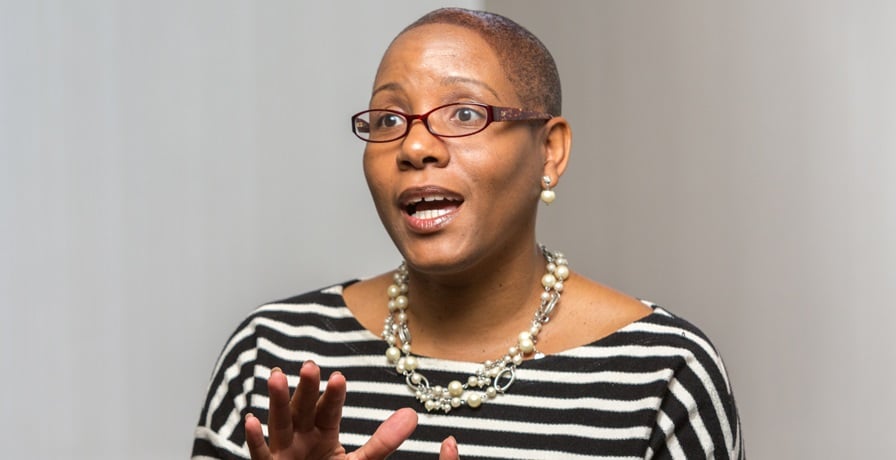African-American financial planners have distinct business challenges because a natural market for them, clients from the black community, face some barriers when it comes to the essential focus of advice: money.
On average, African-Americans are less wealthy than white Americans, they aren't always well-educated on the subject, and culturally, they don't like talking about finances, according to a group of African-American financial advisers who participated in an
InvestmentNews roundtable in Boston. The event earlier this fall took place immediately before the group kicked off its first national conference of the Association of African-American Financial Advisors, known as Quad-A.
“Culturally, whites appreciate advice, and if something goes wrong with mental health or financial health, they are going to get on it and fix it,” said Lazetta Braxton, founder of Financial Fountains. “It's not embedded in our culture that you have a team willing to help you.”
African-Americans don't like to talk about money, and it takes much longer to convince prospects or even clients to trust a financial adviser, the planners said. They mentioned clients being vague about their income and about how much they have saved for retirement.
The disparity of wealth in the U.S. — whites have 13 times the net worth of blacks, according to the Pew Research Center — means advisers have to have double or triple the number of African-American clients as they would white clients to reach the same amount of assets under management, said James Brewer, founder of Envision Wealth Planning.
There's also a lack of financial literacy among some African-Americans, and that impacts the sale cycle, the advisers said.
Mr. Brewer described a prospect who came to him with a "decent-sized portfolio" invested in mutual funds. But after a short time with her, he realized she didn't know a stock from a bond.
“I spent about an hour explaining stocks, bonds and how they get into a mutual fund,” he said.
(More: Even decades of legal protection don't create diversity)
Many African-American advisers want to help their community learn more about responsible budgeting and savings and put an end to generations of outspending their income. Because these clients often don't fit into the model client at advisory firms that typically have asset minimums, some advisers have found other ways to help.
Rianka Dorsainvil, a young planner, started her own firm recently called Your Greatest Contribution because she was tired of having to help her peers after work. She agrees African-American clients require more hand-holding to get them to trust that “there is someone like us that they can come to” and require more education to understand where their financial strategies are failing.
Once they make it through that barrier, where they know they need help, “then it's an easier conversation,” she said.
Mr. Brewer said he'd like to serve more African-American clients, but many can't afford his firm's fees so he writes a blog and uses social media to help educate them.
“There are people who can't afford my hourly rate to get my one-on-one advice, but as humans, they deserve the best that they can get,” he said.
African-American financial advisers also face unique struggles because they are part of an industry that lacks diversity. Only about 8% of the nation's 484,000 financial advisers are black. The advisers who have been successful in the industry said African-American advisers have to work harder than their white counterparts.
Zaniella Harris, president of Harris and Harris Wealth Management Group, described a time earlier in her career when she was working at a wirehouse and used to get to work before other advisers and leave after them, even during her pregnancy.
“I was told that I put pressure on myself, but no one told me to take it off,” she said.
She also described an environment that lacked mentoring and coaching.
“I would see the guys sharing insight about what they were doing with their clients, and they wouldn't share it with me,” Ms. Harris said.
Ms. Braxton said in addition to working long hours, African-American advisers have to be over credentialed and over-qualified just to be at a good starting point with clients and with employers.
Having few other African-Americans in the profession costs those who are in it, because there are fewer people to partner with and form strategic alliances with, which can cut operating costs for advisers and makes more things possible at their advisory practices, the advisers said.
The lack of black advisers also means a low number of mentors for those who are in or coming into the profession.
Gerald Loftin, principal at Proficient Wealth Advisors, said mentoring is extremely important, and it wasn't there when he started in the industry more than 20 years ago.
“As a senior adviser, being able to mentor with a junior adviser is instrumental not only for them, but for me, too,” he said.
Crystal Alford-Cooper, a financial adviser in Baltimore, said firms and organizations need to intentionally bring young minorities into the financial advice business. She hopes that's one way Quad-A can become a force for African-American financial advisers.
That will take people reaching out to minorities in all colleges, not just historically black ones, to teach about financial wellness and the career possibilities of professional advising, she said.
Ms. Braxton said the
opportunity for African American advisers is great because they have had to learn to get along with everyone to survive in a business with so few others who look like themselves.
“We know how to get along with everyone,” she said. “Our time has come; it's going to pay off and we are going to be the ones who help usher in those who got left behind, because we were left behind.”







